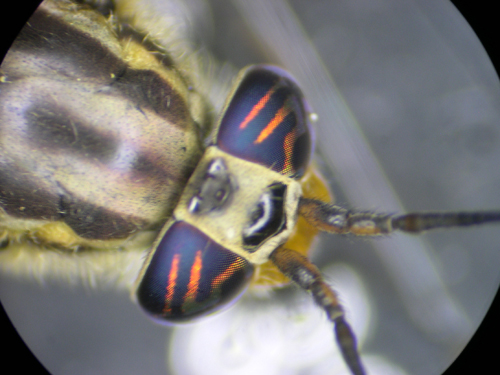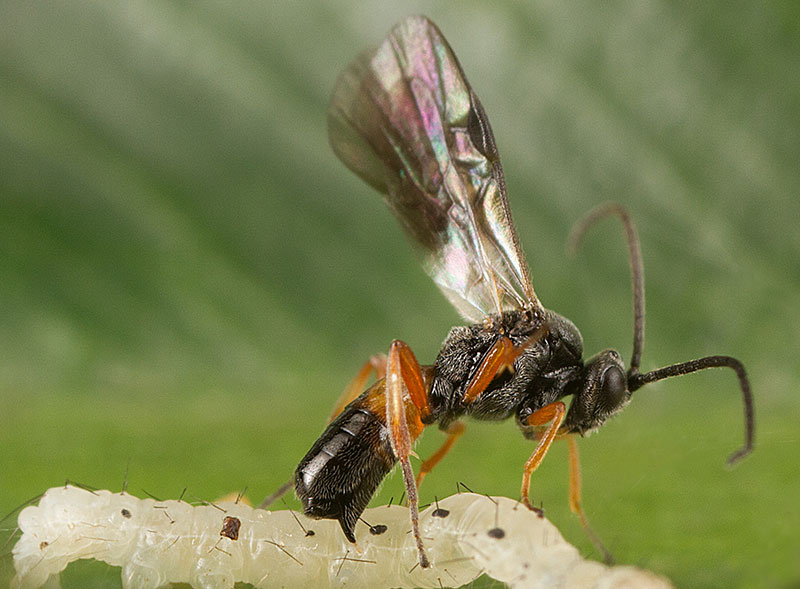People swarm outdoors in the spring to garden, grill out or have fun in the sun. But this can become prime times and places for insect attacks, says a University of Georgia bug expert.
"Insect encounters don't usually result in human injury, and most insects should be left alone," said Elmer Gray, a UGA Cooperative Extension entomologist. "Eliminating areas where insects develop and hide near your home and properly applying pesticides if necessary will help keep most stinging and biting pests away."
That stings!
Social insects, such as bees, wasps, hornets and ants, develop colonies that can house a dozen or up to thousands of individuals. These social insects can inject venom when they sting.
"The social bees, wasps and hornets are a greater stinging threat than the solitary pests because they will attack in large numbers if they perceive the nest is in danger," he said.
While most individuals aren’t aggressive, Gray says all can sting if disturbed or handled.
For most people, a single sting causes pain, swelling and joint stiffness that can last a few minutes or for one or more days. However, some people develop more dramatic reactions where swelling may involve an entire arm or leg, last several days or require hospital treatment. Last fall, a man in Doughtery County died following an attack by Africanized honeybees.
“If a swarm of bees is seen, it is extremely important to avoid disturbing them,” Gray said. “If attacked by a swarm of bees, run away from the attack site to a building or car. Some bees will follow you inside, but do not go back outside of your shelter, as there are always more outside. If you can’t get away from the attacking bees, cover your head.”
Remove stingers by scraping with a firm edge like a credit card or fingernail. Seek medical attention.
Social insects provide plant pollination and prey on pest insects. They shouldn’t be controlled unless they create a hazard to humans. If a nest is found around your home, apply an insecticide in the evening when the insects are at rest.
"With the wind at your back and an escape route selected, aim the insecticide at nest openings in trees, bushes, under eaves, ground cracks and crevices in and around nest openings," he said. "If possible, destroy the nest or seal the nest opening. Honeybees nesting in buildings will require professional hive removal."
Treat fire ant mounds right after rain, he said. Gently pour an insecticidal drench over the mound so that the mixture breaks the surface. Do not stir the mound. Use 1 to 2 gallons for the average 12- to 14-inch diameter mound. Granular and bait formulations can also be used.
Shoo fly!
Most people think houseflies are troublesome. But deer flies, horse flies, black flies and biting midges are more than annoying. They bite!
"Deer and horse flies are strong fliers and a serious nuisance of warm-blooded animals and people," Gray said. "The puncture from the large bladelike mouth parts and the saliva used in feeding can cause pain, swelling and itching."
Biting midges -- also called no-se-ums, punkies or sand flies -- are very small. Some can fit through a standard window screen. Often their bite is felt, but they are not seen. Welts and lesions may last for days.
Biting midges are more of a problem around creek beds and swamps, Gray said. The larvae develop in damp soil. This is why homeowners in residential areas without standing water are less likely to be bitten.
Black flies, or buffalo gnats, develop in fast-flowing rivers or streams. They are found in the piedmont and mountainous areas but can be numerous in lower portions of the state during wet periods. The saliva they inject causes swelling and soreness.
"The most effective way to reduce exposure to flies is to treat skin with repellent," Gray said.
Look for a repellent containing DEET. "Concentrations of DEET up to 30 percent are approved for use on children and infants older than two months of age," Gray said. "Concentrations of 10 percent will typically be sufficient to protect children under most circumstances, unless extreme pest populations are encountered."
The Center for Disease Control and Prevention approves picaridin, oil of lemon, eucalyptus and IR3535 as alternatives to DEET, but they are not approved for children under three.
Clothing can be treated with permethrin to deter flies. Remember, too, that light-colored clothing may be less attractive than dark clothing to most biting insects.
For more information, read Gray's UGA Extension publication "Stinging and Biting Pests of People."











